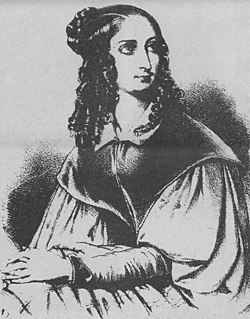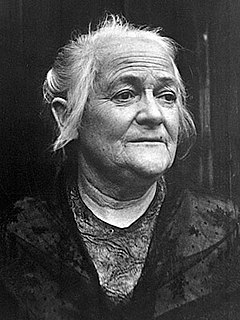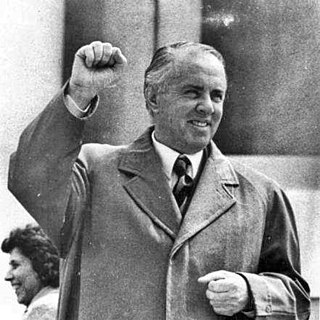A Quote by Flora Tristan
The Woman is the Proletarian of the Proletariat
Quote Topics
Related Quotes
The struggle for socialism is the struggle for proletarian (working class) democracy. Proletarian democracy is not the crown of socialism. Socialism is the result of proletarian democracy. To the degree that the proletariat mobilizes itself and the great masses of the people, the socialist revolution is advanced. The proletariat mobilizes itself as a self-acting force through its own committees, unions, parties, and other organizations.
What is Communism? Communism is the doctrine of the conditions of the liberation of the proletariat. What is the proletariat? The proletariat is that class in society which lives entirely from the sale of its labor and does not draw profit from any kind of capital; whose weal and woe, whose life and death, whose sole existence depends on the demand for labor.
But though Usury is in itself immoral, and justly condemned by every ethical code, its chief and worst defect in the particular case we are now examining, the growth of Capitalism and its increasing proletariat, is the centralization of irresponsible control over the lives of men: the putting power over the proletariat into the hands of a few who can direct the loans of currency and credit without which that proletariat could not be fed and clothed and maintained in work.
The anarchists put the thing upside down. They declare that the proletarian revolution must begin by doing away with the political organization of the state. But to destroy it at such a moment would be to destroy the only organism by means of which the victorious proletariat can assert its newly-conquered power, hold down its capitalist adversaries, and carry out that economic revolution of society without which the whole victory must end in a new defeat and a mass slaughter of the workers similar to those after the Paris commune.
A Marxist begins with his prime truth that all evils are caused by the exploitation of the proletariat by the capitalists. From this he logically proceeds to the revolution to end capitalism, then into the third stage of reorganization into a new social order of the dictatorship of the proletariat, and finally the last stage -- the political paradise of communism.
Purchasing power is a license to purchase power. The old proletariat sold its labour power in order to subsist; what little leisure time it had was passed pleasantly enough in conversations, arguments, drinking, making love, wandering, celebrating and rioting. The new proletarian sells his labour power in order to consume. When he’s not flogging himself to death to get promoted in the labour hierarchy, he’s being persuaded to buy himself objects to distinguish himself in the social hierarchy. The ideology of consumption becomes the consumption of ideology.
As we know, the goal of every struggle is victory. But if the proletariat is to achieve victory, all the workers, irrespective of nationality, must be united. Clearly, the demolition of national barriers and close unity between the Russian, Georgian, Armenian, Polish, Jewish and other proletarians is a necessary condition for the victory of the proletariat of all Russia.



































